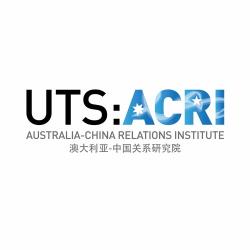We like to think of Australia as a multicultural and inclusive nation. But a new report, 'Leading for change: A blueprint for cultural diversity and inclusive leadership revisited', reveals that despite the cultural diversity of Australia’s population, the majority of leadership in business, politics, government and higher education remains overwhelmingly Anglo-Celtic or European. Why? How does this impact Australia’s future? How might it affect the Australia-China relationship? What can be done about it?
Philipp Ivanov, CEO of the Asia Society Australia, joins James Laurenceson, Deputy Director of the Australia-China Relations Institute (ACRI) at the University of Technology Sydney to discuss the report’s findings, and how Australia might achieve more culturally diverse leadership.
Guest: Philipp Ivanov, CEO, Asia Society Australia
Host: James Laurenceson, Deputy Director, Australia-China Relations Institute (ACRI), University of Technology Sydney
We like to think of Australia as a multicultural and inclusive nation. But a new report, Leading for change: A blueprint for cultural diversity and inclusive leadership revisited, by the Australian Human Rights Commission in collaboration with the University of Sydney Business School, the Committee for Sydney and the Asia Society Australia, reveals that despite the cultural diversity of Australia’s population, the majority of leadership in business, politics, government and higher education remains overwhelmingly Anglo-Celtic or European.
Why? How does this impact Australia’s future? How might it affect the Australia-China relationship? What can be done about it?
Philipp Ivanov joins James Laurenceson to discuss the report’s findings, and how Australia might achieve more culturally diverse leadership.
The report adopts a classification that includes four broad cultural backgrounds: Indigenous Australian; Anglo-Celtic, European, and non-European. It finds that 95 percent of senior leaders in Australia have an Anglo-Celtic or European background, despite 21 percent of the population being from non-European origins. Furthermore, there isn’t a pipeline in Australia of culturally diverse leaders at the deputy levels.
More data need to be collected on the effects of lack of cultural diversity on Australia’s future. But anecdotal evidence indicates that lack of cultural diversity is having an effect on Australia’s commercial engagement with other countries. The nature of Australia’s international trade is changing: trade in commodities and natural resources are giving way to more service-oriented, people-centric industries. This will necessitate the development of a different set of leaders in all sectors.
There is a lack of cultural representation across business, politics, government and higher education. ASX200 companies are, however, performing marginally better, due to their levels of international engagement and the need to have leaders that represent their business interests.
Client-facing roles demonstrate a higher degree of cultural diversity than at the leadership level; for example, university international offices, bank offices and service industries tend to include culturally diverse personnel. On Australia’s economic engagement with China specifically, without the expertise and experience of client-facing personnel with Chinese background, Australia may not have been as successful. However, culturally diverse staff should not be limited to these roles; Australia needs imagination and creativity in leadership in all industries to remain competitive.
Furthermore, lack of cultural diversity is a contributing factor to the lack of ideas for the future of the Australia-China relationship. A conversation needs to be had about China’s influence in Australia, and the relationship with China will become more resilient as a result. At the same time, institutions need to ensure the Chinese community is not targeted or isolated due to the current debate. Members of the Chinese community should not be held back from political leadership roles due to a climate of fear, as Australian leadership needs to better reflect the diversity of its population as a whole.
Theme music by Sam J Mitchell.


